Venture to Iceland, and you’ll soon discover it’s one of the most awe-inspiring places on Earth. Explore glaciers and volcanoes, chase the northern lights, and experience life in the world’s safest and friendliest nation.
If that’s not enough to answer the question, “Is Iceland worth visiting?”, then read on for 9 reasons why a trip here promises to be unforgettable. It won’t be long until the Land of Fire and Ice is on your must-see list.
- Get inspired by these expert-curated tours of Iceland
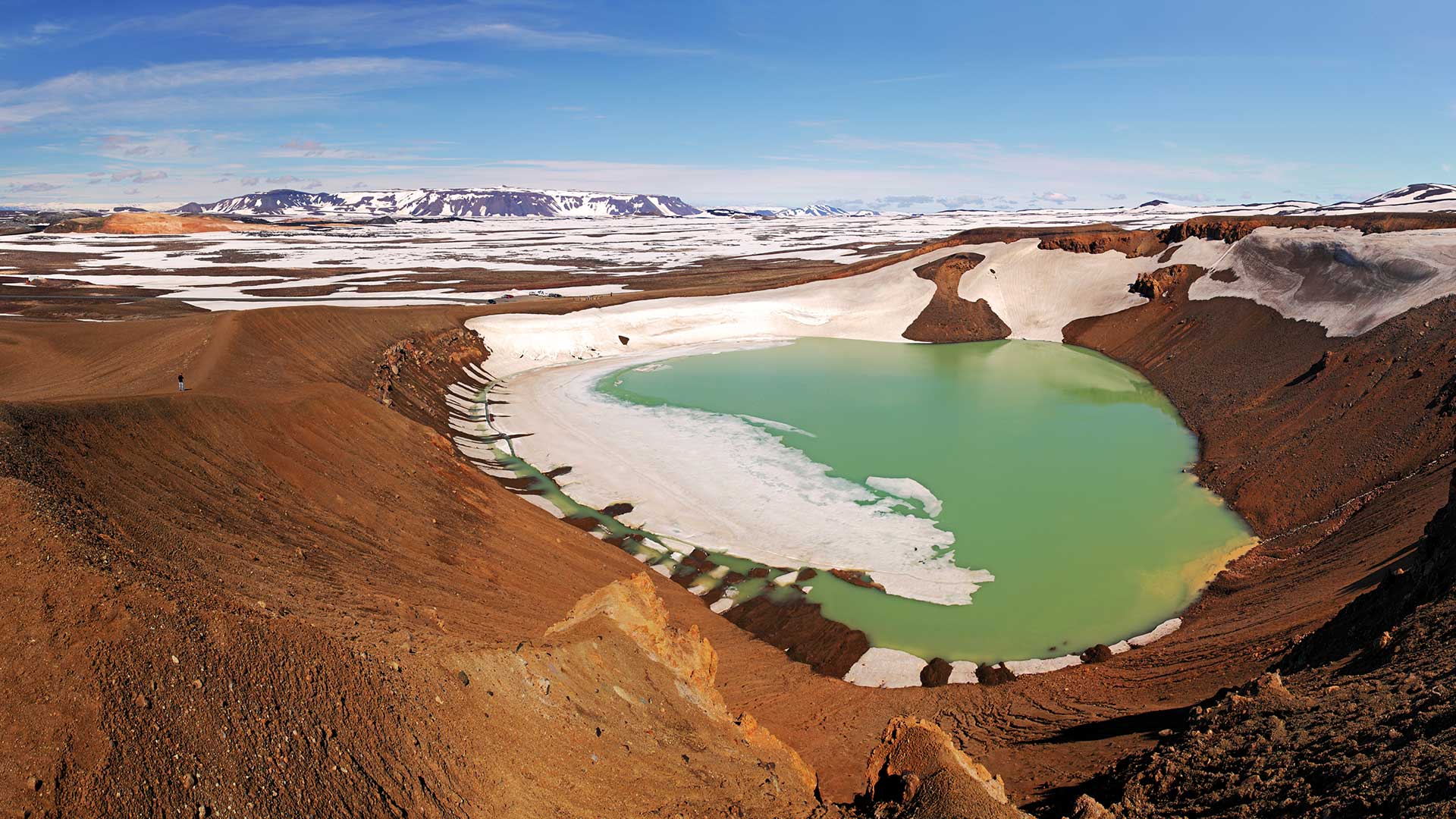
1. It’s home to glaciers and volcanoes
There are few places where you can appreciate glaciers and volcanoes side by side. Visit Iceland, and you’ll see how these powerful natural forces have shaped the landscape. It’s nicknamed the Land of Fire and Ice for a reason!
11% of the country’s land surface is covered by ice, and you’ll find glaciers in most regions of Iceland.
Spanning 8,400 square kilometres (3,200 square miles), Vatnajökull is the country’s largest ice cap. To see it for yourself, head to Jökulsárlón glacier lagoon in South Iceland. Take a boat tour here, and you can glide between floating icebergs with the mighty Vatnajökull glacier in the background.
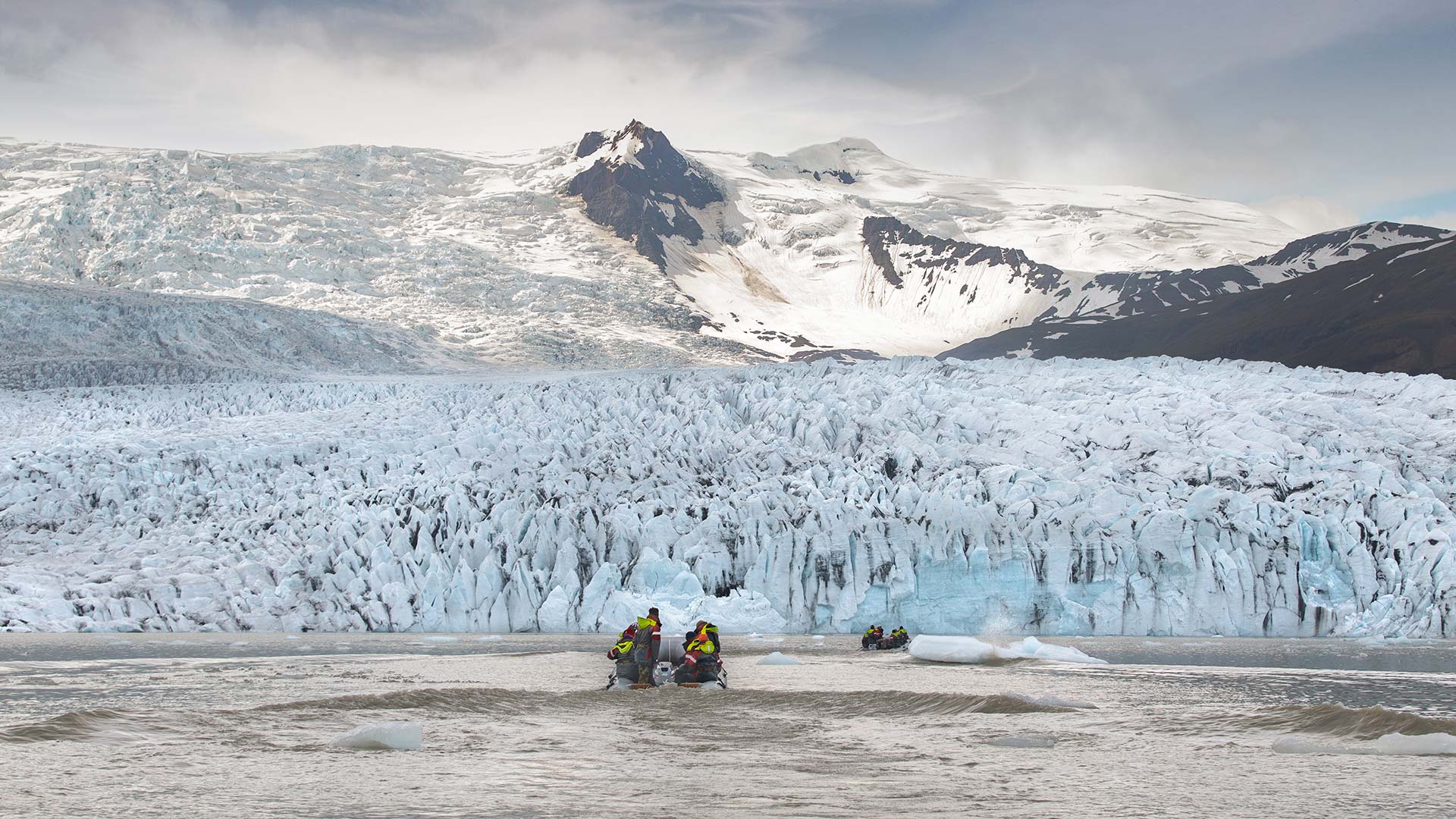
In Iceland, volcanoes are never far away either. One of the most jaw-dropping is the glacier-topped stratovolcano in Snæfellsjökull National Park. On a clear day, you can even glimpse it from Reykjavík.
As you travel around the country, you’ll see signs of volcanic activity all over the place. Think moss-blanketed lava fields, hexagonal basalt columns, and vast calderas like Krafla.
Good to know: Since 2021, there have been several fissure eruptions on the Reykjanes peninsula. These events haven’t affected visitors, but you can find out more about them on our Iceland volcanic activity update page.
- See volcanoes and glaciers on these top-recommended Iceland tours
- Related: Volcanic experiences to have in Iceland
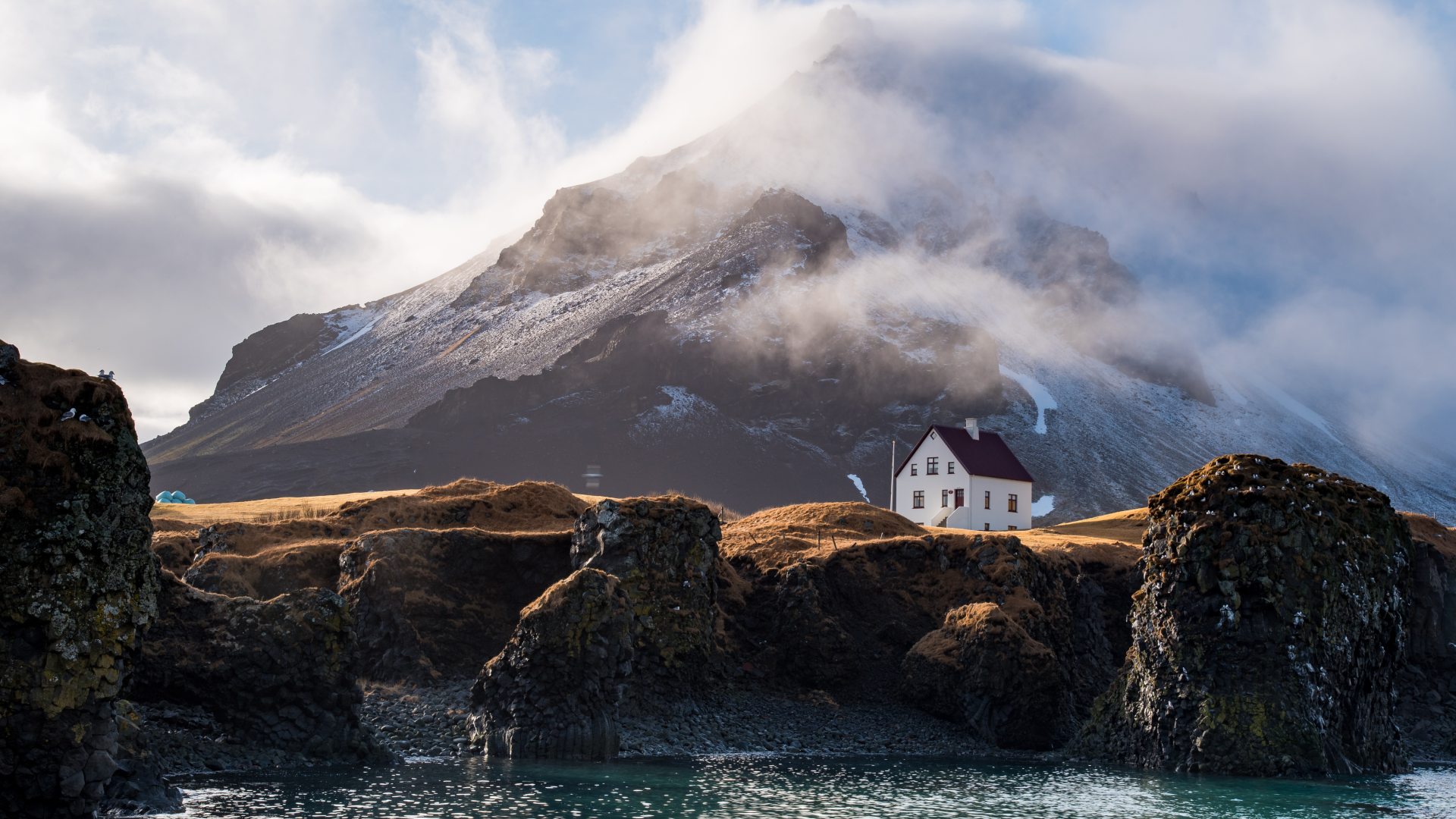
2. You can explore otherworldly scenery
It’s these volcanic and glacial forces that shape Iceland’s landscapes. At times, your surroundings will be spectacular, and at others, they’ll be downright surreal.
You’ll find some of the country’s most unusual scenery in the Icelandic highlands. Where else can you bathe in volcanic hot springs while gazing at multi-coloured mountains? Thanks to minerals in the rock, the hills around Landmannalaugar are a kaleidoscope of bright pinks, yellows, greens and reds.
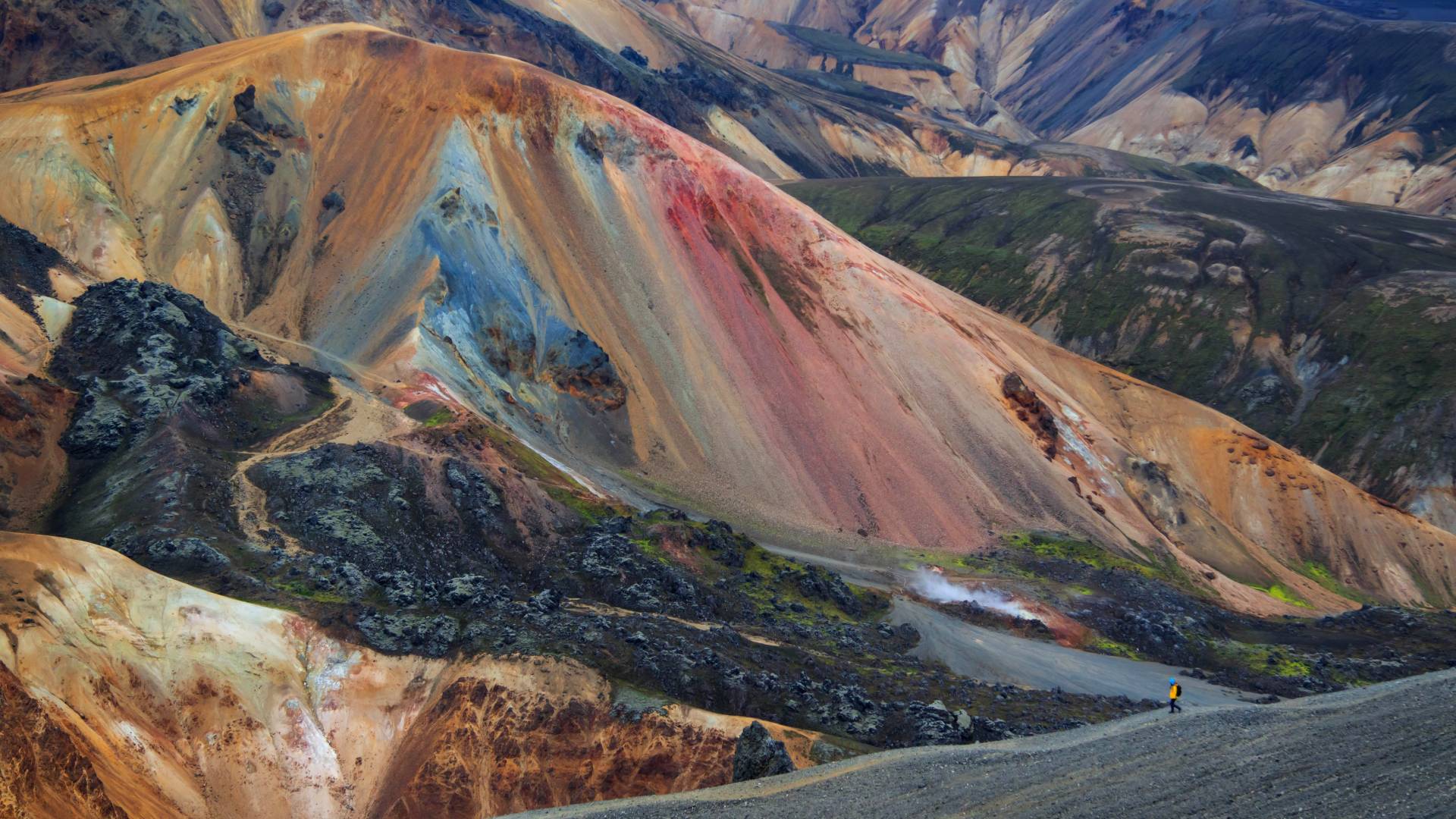
Elsewhere, there are plenty more breathtaking sights in store for you, such as dazzling ice caves and gushing geysers. Tour the south coast and discover stunning waterfalls, including Gullfoss, Seljalandsfoss and Svartifoss. Or visit Reynisfjara, a black sand beach that’s home to towering sea stacks shrouded in folklore.
- Visit one of Europe’s last wildernesses on a tour of the Icelandic highlands
- Related: Iceland’s highlands – Your guide to the best parts
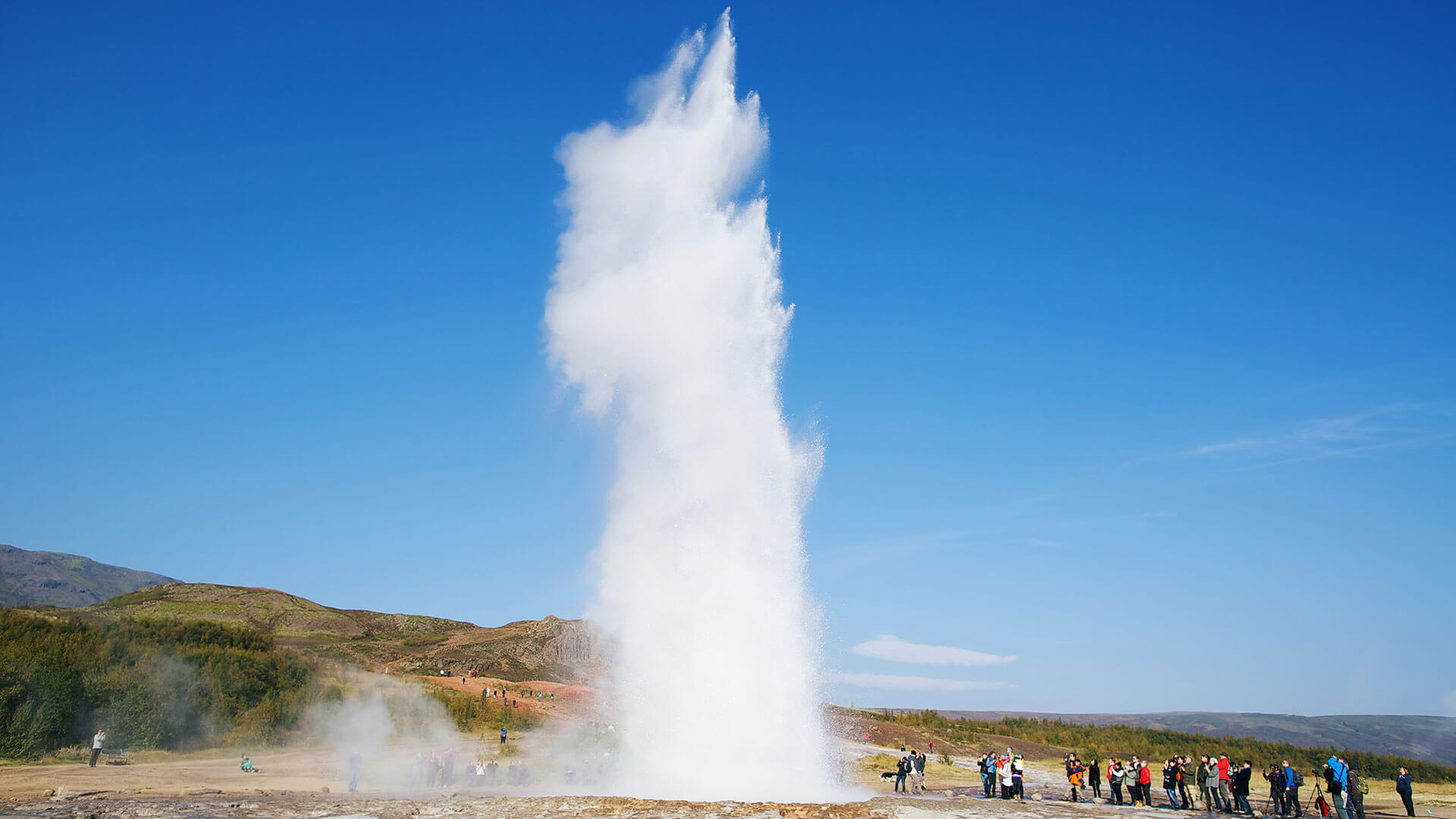
3. Experiencing the midnight sun or northern lights is unforgettable
At 64°N, Reykjavík is the most northern capital city in the world. Being at this latitude means Iceland experiences dramatic changes in daylight hours throughout the year. In summer, you’ll encounter the midnight sun. Meanwhile, winter brings a chance to glimpse the northern lights in winter.
During summer – May, June and July – the sun hardly sets. So you can enjoy glorious evenings beneath bright skies. It’s a stunning time to be in Iceland, whether you’re soaking up the scenery late in the day or spending the evening in Reykjavík.
Winter, on the other hand, is the northern lights season. From October to April, the long nights are perfect for chasing the aurora borealis. Thanks to dark skies and low light pollution, Iceland is one of the world’s best places to witness this spellbinding phenomenon.
- Hunt for the aurora on an Iceland northern lights tour
- Related: Best times and places to see the northern lights in Iceland
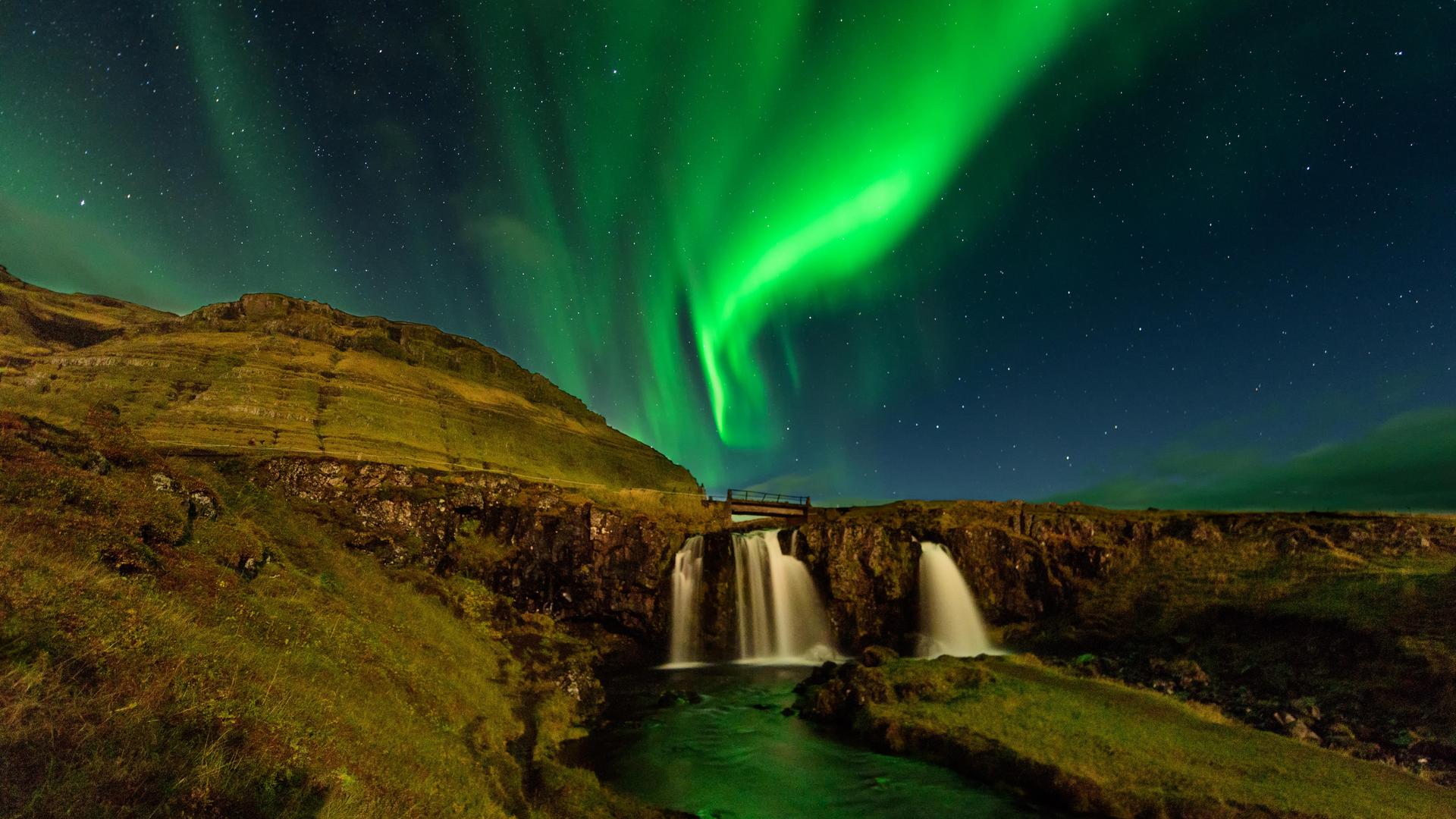
4. There are lots of thrilling outdoor activities to try
Imagine experiencing Iceland’s glaciers on a snowmobile tour or guided hike. Alternatively, why not explore the countryside on an Icelandic horse or ATV excursion?
You could even head to Silfra in Þingvellir National Park, where you can snorkel in crystal-clear water between the North American and European tectonic plates.
Or, if you like the idea of discovering Iceland from the water but fancy something more leisurely, try kayaking instead.
While many of these things to do are possible year-round, mild temperatures make summer the best time of year for hiking. And with countless trails crisscrossing the country, Iceland is a hiker’s paradise. The forests of Ásbyrgi canyon, Hornstrandir Nature Reserve, and Snæfellsnes peninsula are just a few places you’ll find jaw-dropping trails.
- Immerse yourself in nature on these active trips in Iceland
- Related: Thrilling things to do in the Land of Fire and Ice
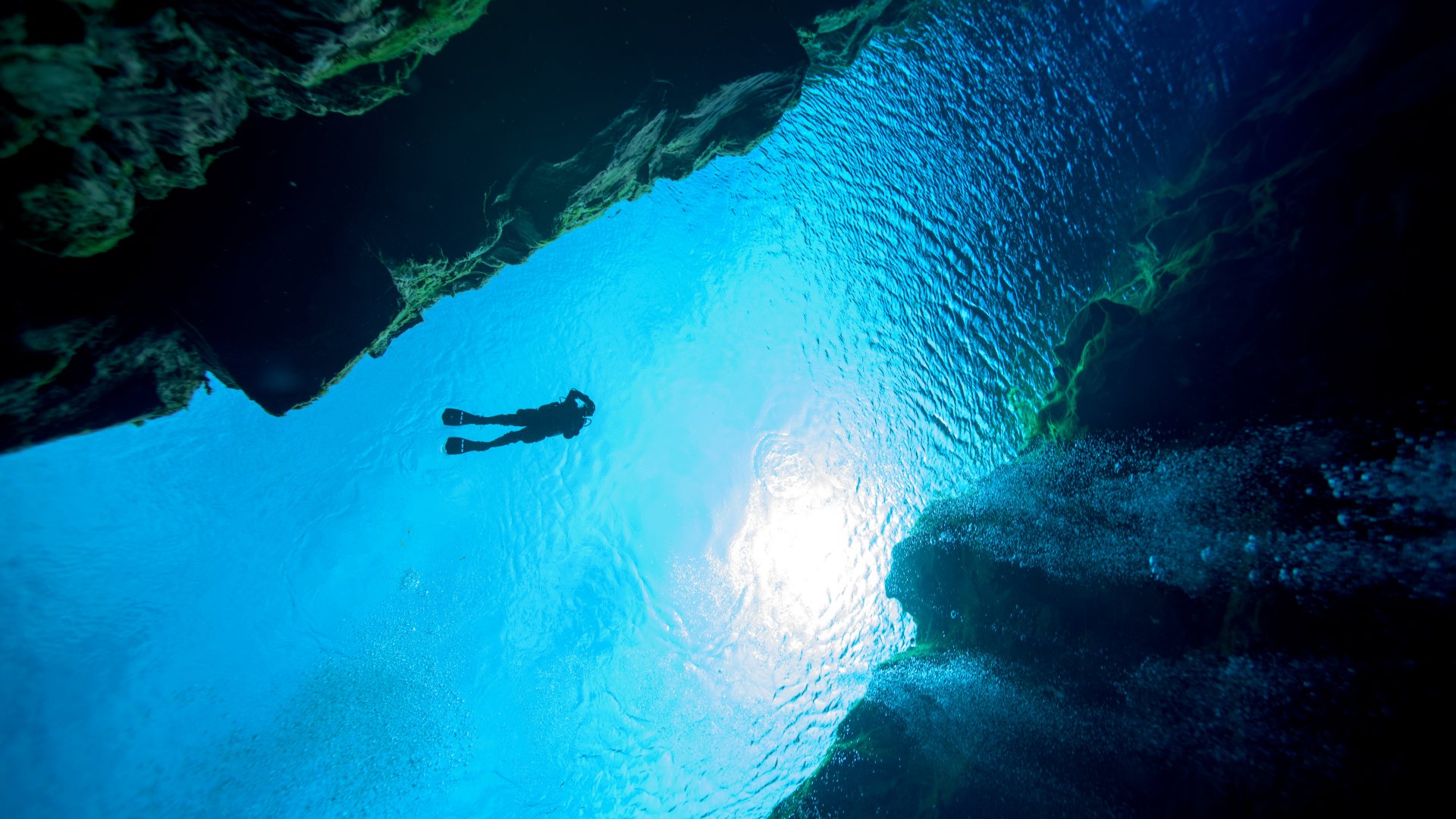
5. Countless hot springs and spas are waiting for you
If you need to unwind, Iceland’s got you covered. Choose between scenic geothermal pools, indulgent spas, and natural hot springs.
One of the most popular geothermal pools here is Sky Lagoon. With an infinity pool overlooking the Atlantic Ocean, a swim-up bar, and a 7-step wellness ritual, it’s the perfect place to while away an afternoon. Plus, it’s just a 20-minute drive from Reykjavík.
Not much further away from the capital, you'll find the Blue Lagoon. This world-renowned facility is famous for its therapeutic milky-blue waters and luxurious spa.
For something more down to earth, head for Forest Lagoon in North Iceland or try a natural hot spring. Venture into Reykjadalur, the so-called “steam valley”, which shelters a naturally-heated river. Or visit Laugavallalaug, where you’ll find a pool complete with a warm waterfall.
- Recharge with a relaxing spa break in Iceland
- Related: Top hot springs and geothermal pools in Iceland
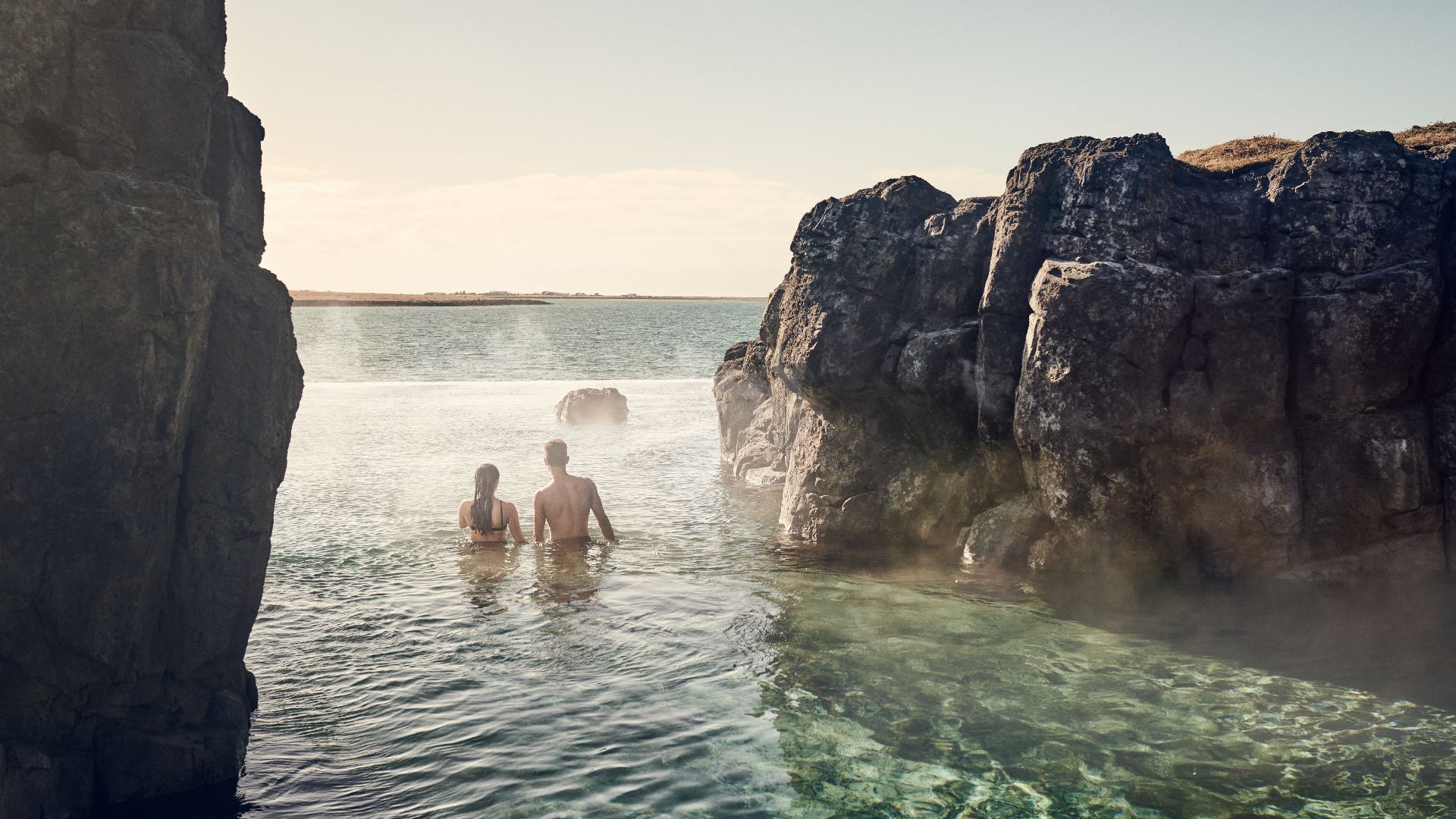
6. You can glimpse wildlife on land, at sea and in the air
You might not expect abundant wildlife this far north. But plenty of captivating creatures call this island nation home.
One of the most adorable is the Arctic fox. It’s the only land mammal native to Iceland. If you want to see one, you’ll need to look out for different colours, depending on the season. In summer, their coats are greyish brown. Meanwhile, they turn white in winter to camouflage with the snow.
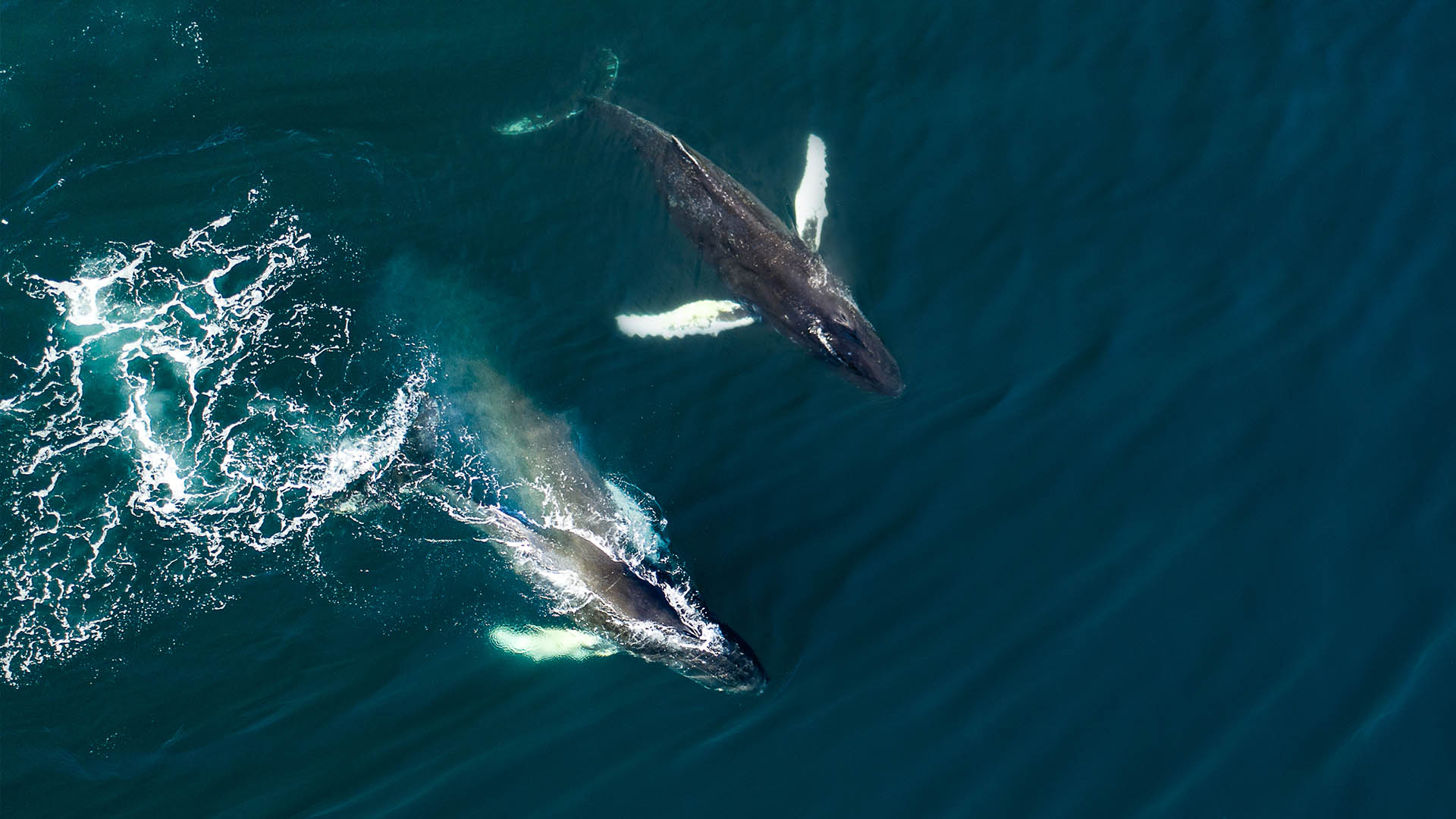
There’s plenty of marine life around Iceland, too. Many species live here year-round, but you’ll get the most variety in summer. At this time of year, there are up to 23 whale species in Iceland’s seas. Take a boat trip, and you can witness orcas, minke whales, humpbacks, and other animals like dolphins and seals.
For birdlife, look to Iceland’s cliffs and skies. One local favourite is the puffin, a charming and colourful bird that visits Iceland in summer. They arrive around April and stay until August, raising their chicks in burrows above sea cliffs.
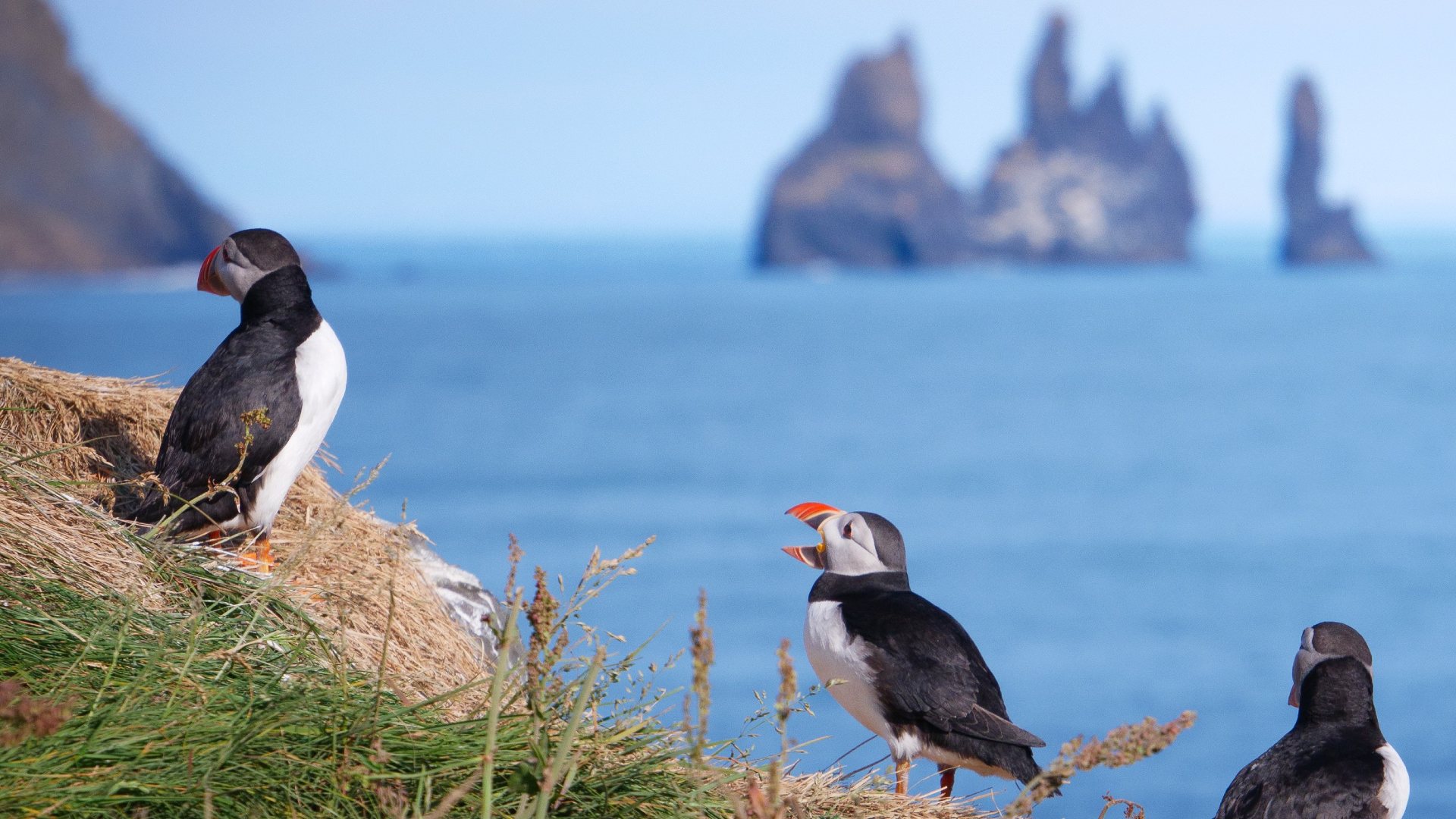
7. It’s the safest country in the world
The country’s dramatic landscapes and natural wonders are enough to make the Land of Fire and Ice well worth exploring. But you might also be wondering, “What is Iceland like to visit?”. Well, the Nordic culture and welcoming locals are other great reasons to spend time here.
What’s more, Iceland is the safest country in the world, according to the Global Peace Index. This, along with the country’s world-leading equality policies, makes it an excellent destination for solo, female and LGBTQ+ travellers.
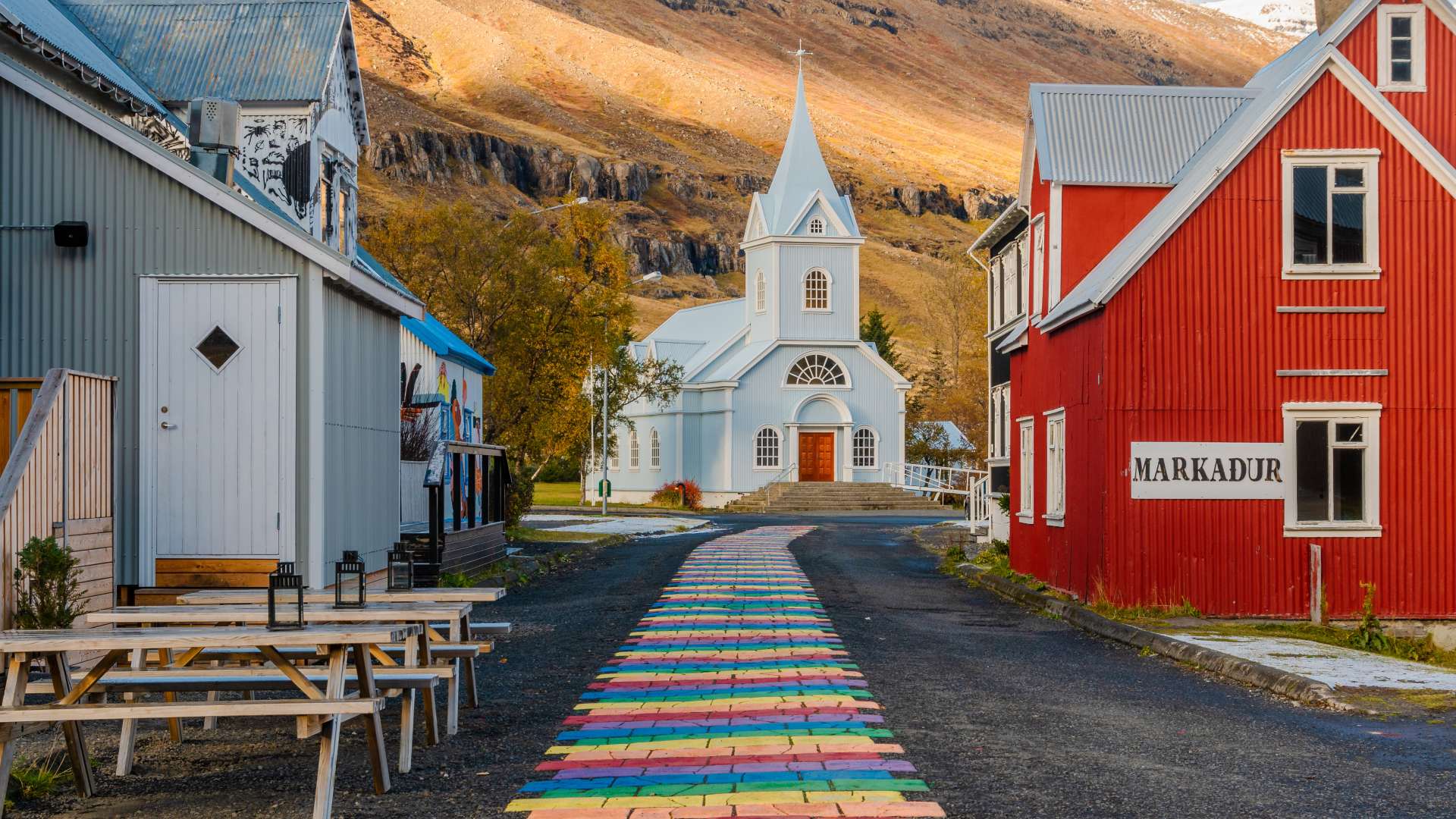
Plus, there are lots of local events throughout the year. You could join in with festivals like Reykjavík Pride or Iceland Airwaves, the country’s biggest music event. You could also take part in traditional gatherings such as réttir or celebrate New Year at a glittering party in Reykjavík.
What’s more, Iceland has Viking heritage to dig into. Visit museums around the country to learn about the Icelandic sagas and how the nation was settled.
- Related: Is Iceland safe to visit?
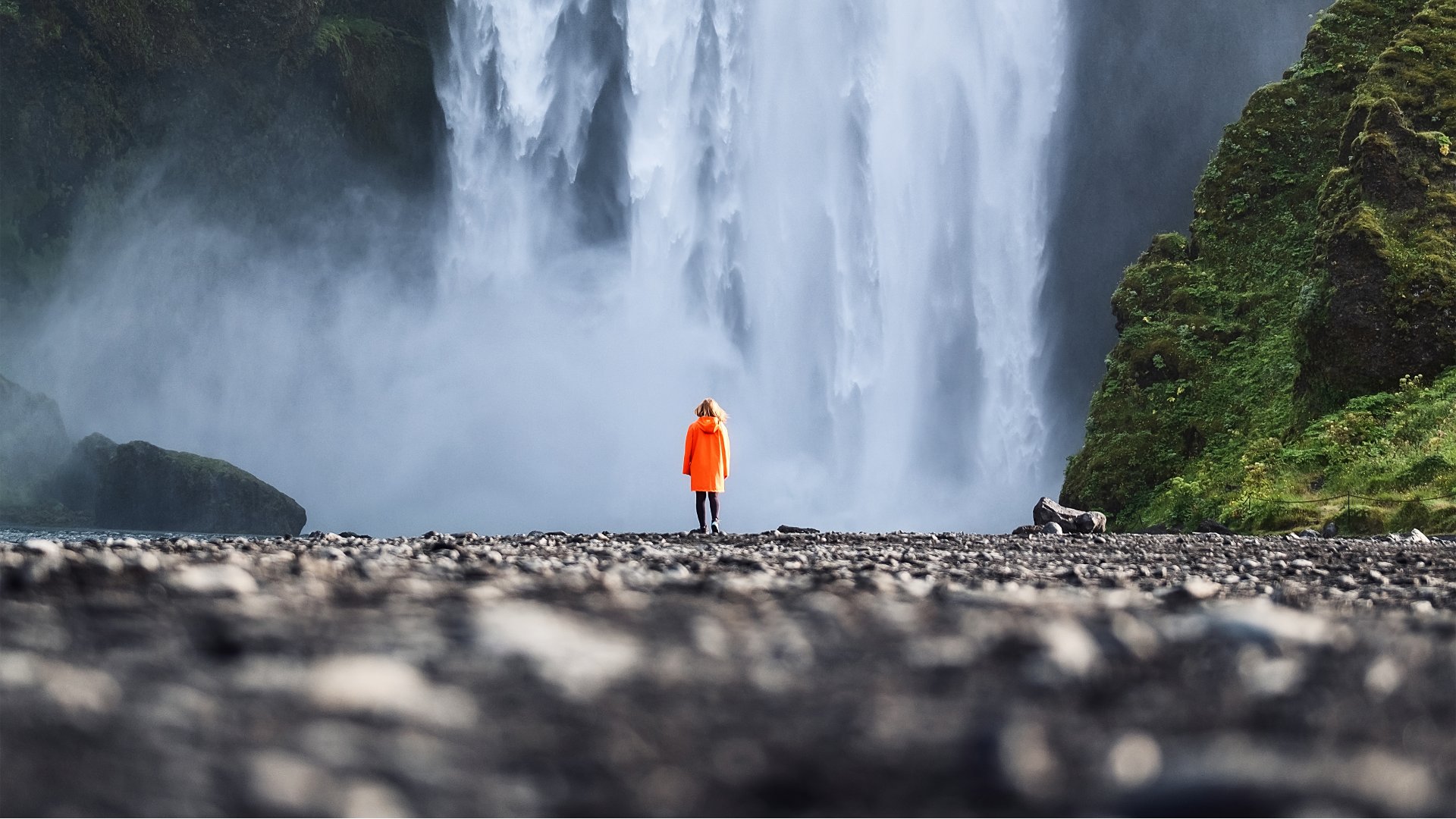
8. Getting to Iceland is easy from North America and Europe
Located in the Atlantic Ocean between North America and Europe, it’s surprisingly quick to get to get here. Yet another reason Iceland is worth visiting!
Fly from North America, and you’ll be able to reach Iceland in 5 hours from New York. Flights also go from cities such as Baltimore, Seattle, and Washington DC.
If you’re travelling from London, the journey is even quicker at just 3 hours. There are also regular flights from other European cities, including Paris, Milan, Brussels and Stockholm.
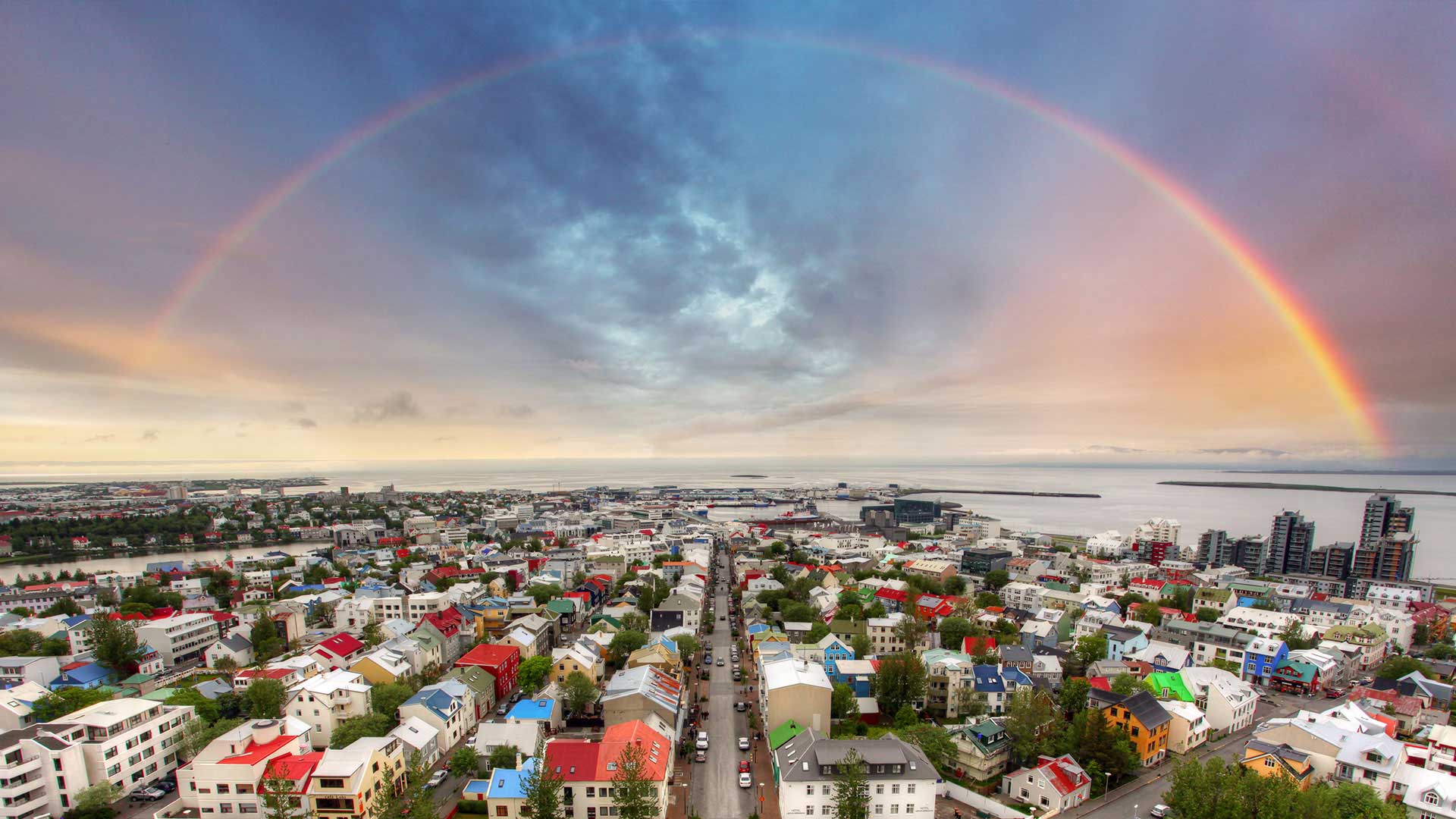
The country’s main arrival point is Keflavík International Airport near the capital city of Reykjavík. That said, flying directly from the UK or Switzerland to Akureyri International Airport in North Iceland is also possible. Otherwise, Akureyri is a 45-minute domestic flight from Keflavík.
Once you’re in Iceland, something else that you may not have expected is how easy it is to get around. Although the country’s northern tip borders the Arctic Circle, the weather’s not as extreme as you might think. This means travelling between the sights is straightforward, even in winter.
- Explore with a knowledgeable local by your side on these small group trips in Iceland
- Related: Iceland travel – Everything you need to know
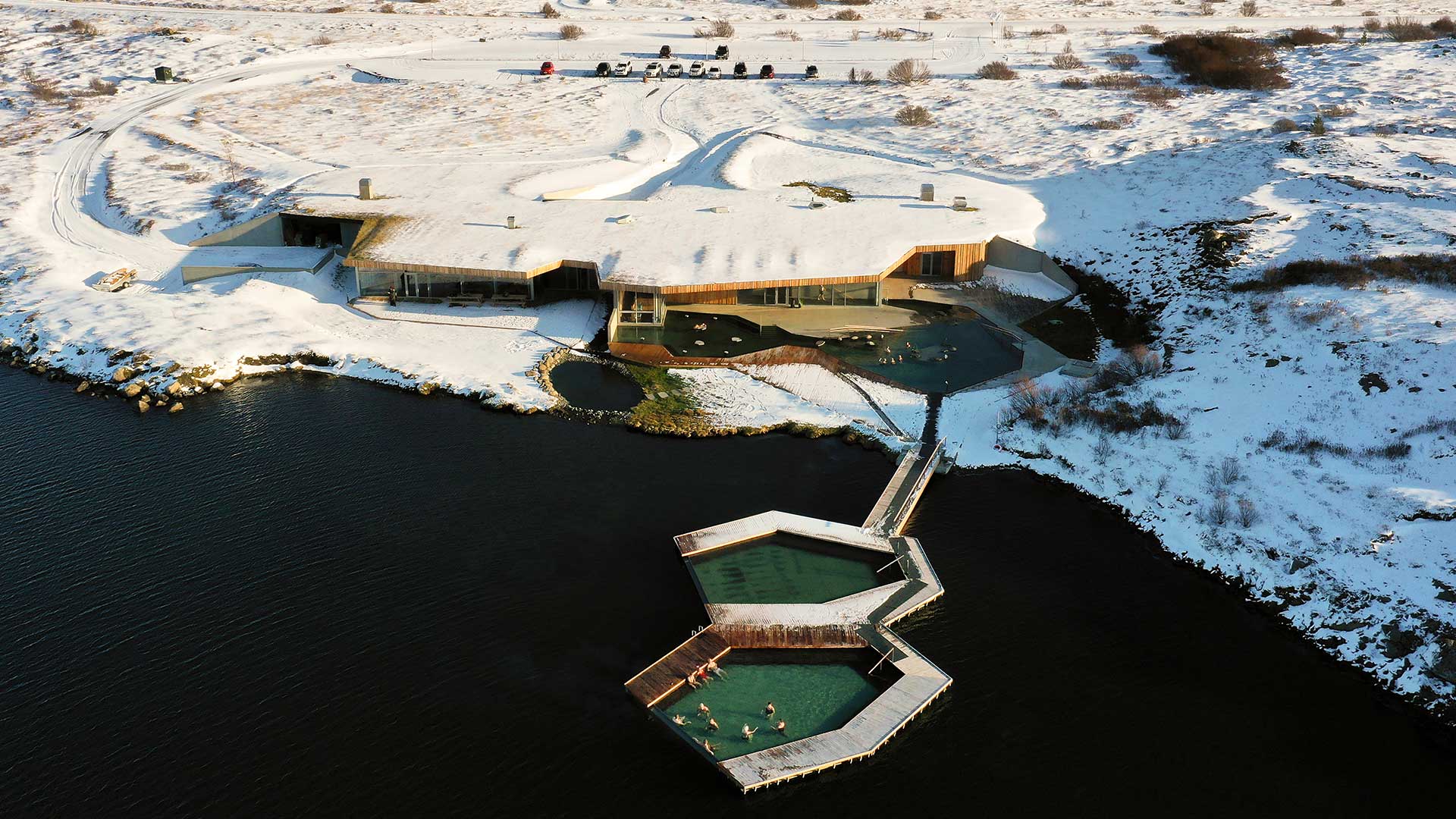
9. It’s possible to travel around Iceland in a week
You can enjoy a memorable trip no matter how long you stay. It’s even possible to experience Iceland’s highlights in as little as 7 days.
A popular way to do this is by renting a car and driving the Ring Road. While a week is reasonable for seeing the top sights, you could easily spend 2 weeks or more on this route.
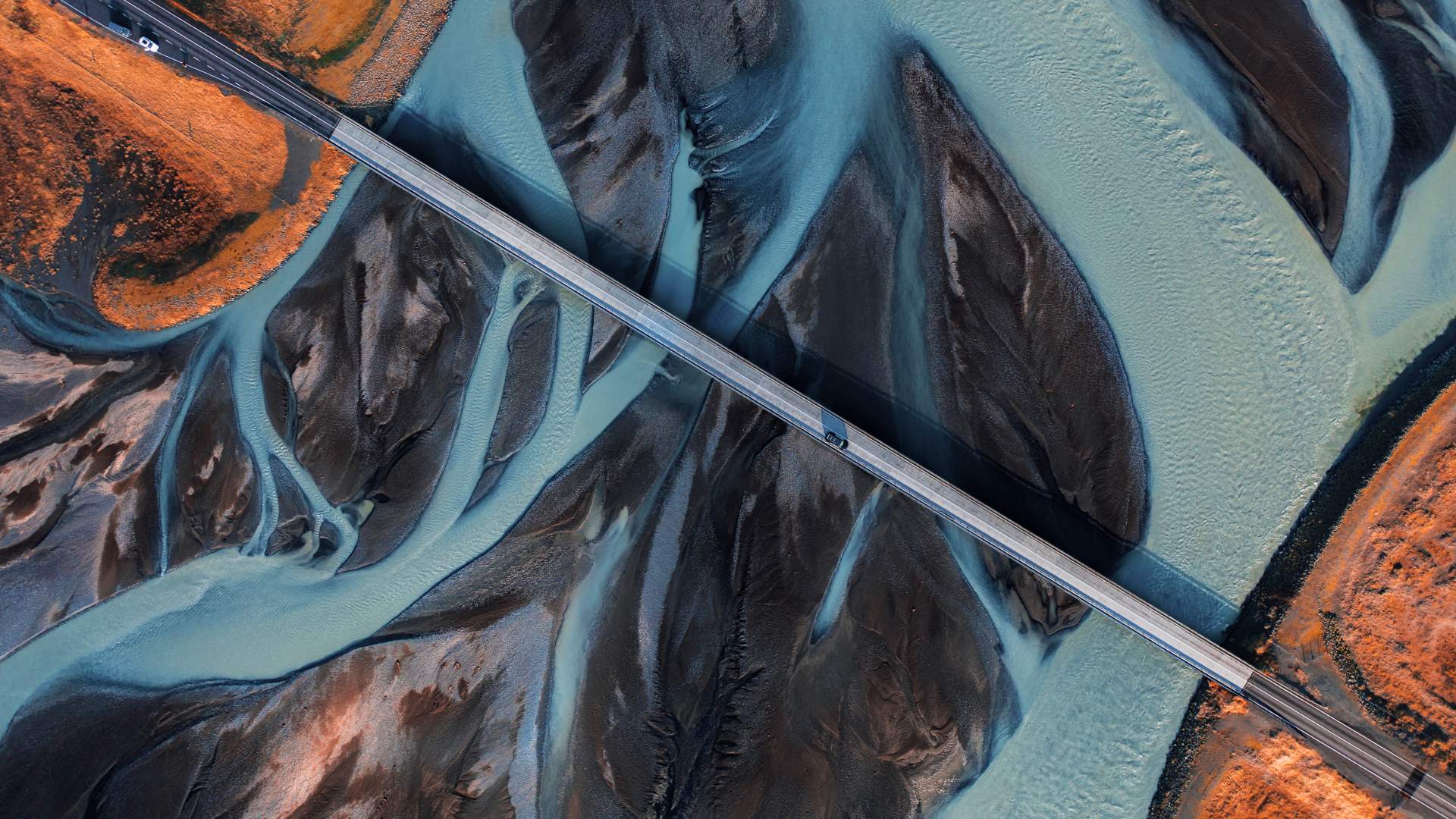
That said, you can also get a flavour of Iceland in just a few days. Make the most of your time by basing yourself in Reykjavík and taking day trips into the countryside. This way, you’ll experience Iceland’s natural highlights while diving into culture in the capital.
Stick to the Reykjanes peninsula and South Iceland if you want to see top attractions such as the Golden Circle and Blue Lagoon. From here, you can also venture along the south coast to glimpse waterfalls and black sand beaches.
For more off-the-beaten-path places, head north or west from the capital. Here, you’ll find less-visited spots like Djúpalónssandur beach, Arnarstapi village, and the Hvammsvik hot springs.
- Explore at your own pace on a self-drive tour of Iceland
- Related: How many days do you need in Iceland?
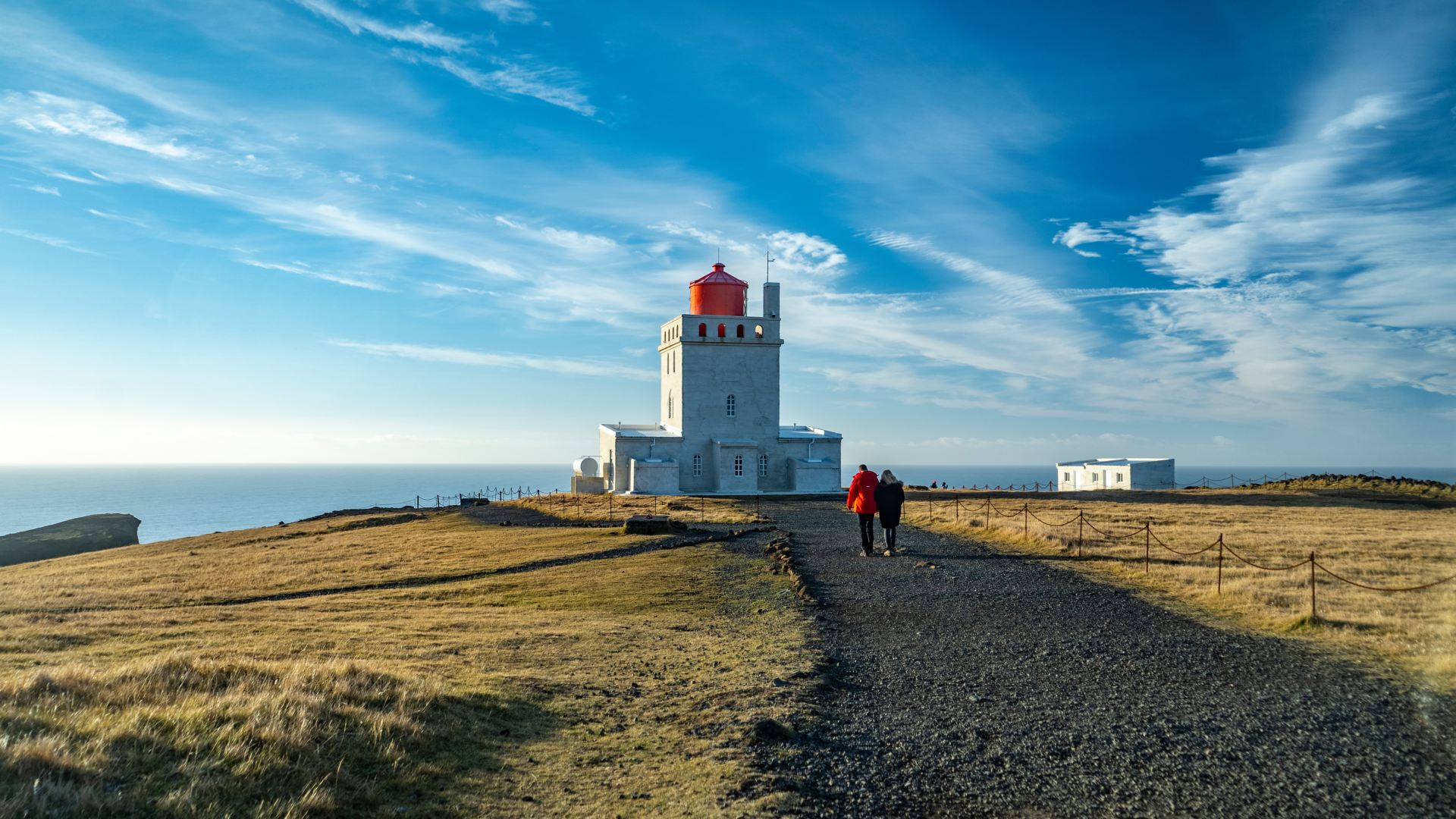
Discover Iceland with Nordic Visitor
So, is Iceland a good place to visit? Absolutely! With its spectacular landscapes, diverse wildlife, and vibrant local culture, it makes for a truly unforgettable destination. What are you waiting for?
Book with Nordic Visitor and see how easy it can be to plan your Iceland getaway. A Reykjavík-based travel expert will arrange your accommodation, local transport, and any activities. Plus, you’ll get a detailed guide to Iceland, a hand-marked map and personalised recommendations from your dedicated travel consultant.
Opt for a self-drive tour if you want the freedom to go at your own pace. Alternatively, explore with a local guide on a small group trip or private tour.
Multi-day tours are another great option if you’d prefer a single base for your trip. You’ll take guided excursions into the countryside by day and, come evening, soak up culture in Reykjavík or Akureyri.
Get in touch with us to start planning your escape to Iceland. The trip of a lifetime awaits!
